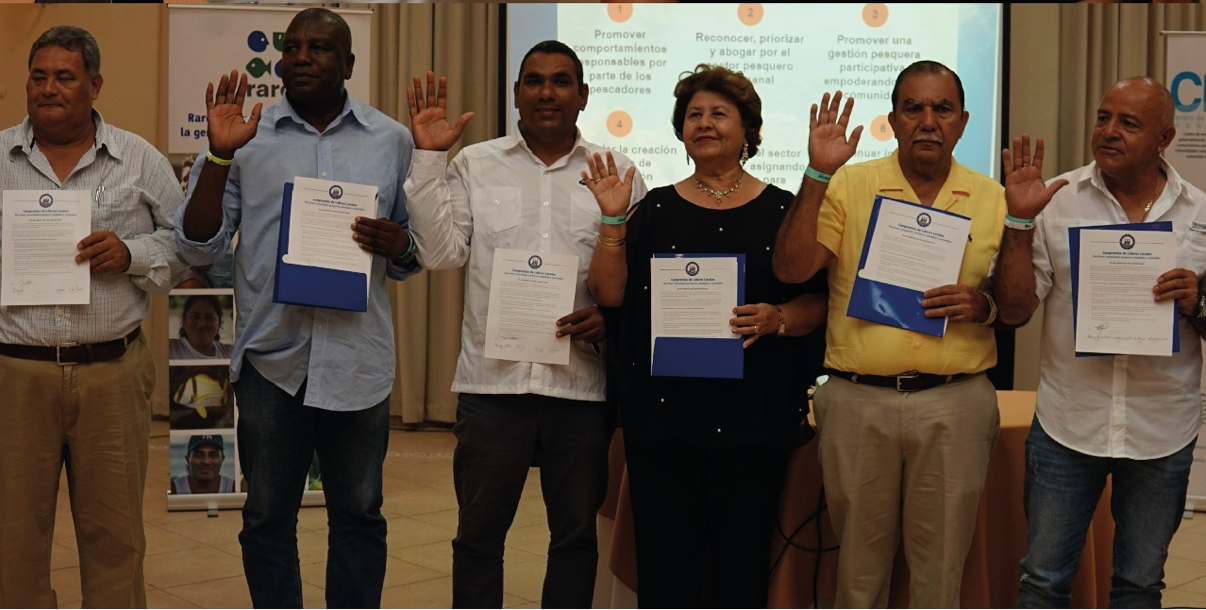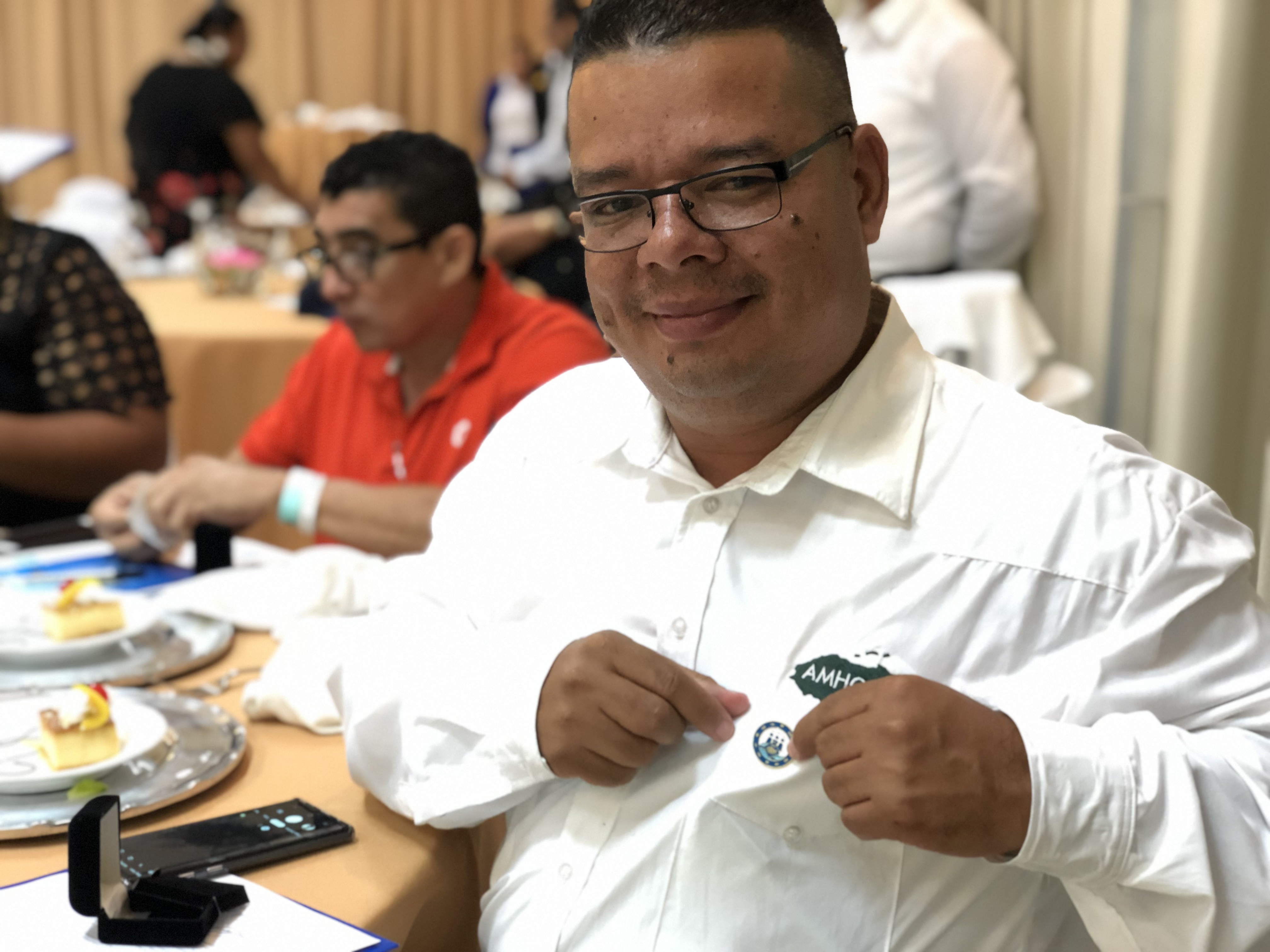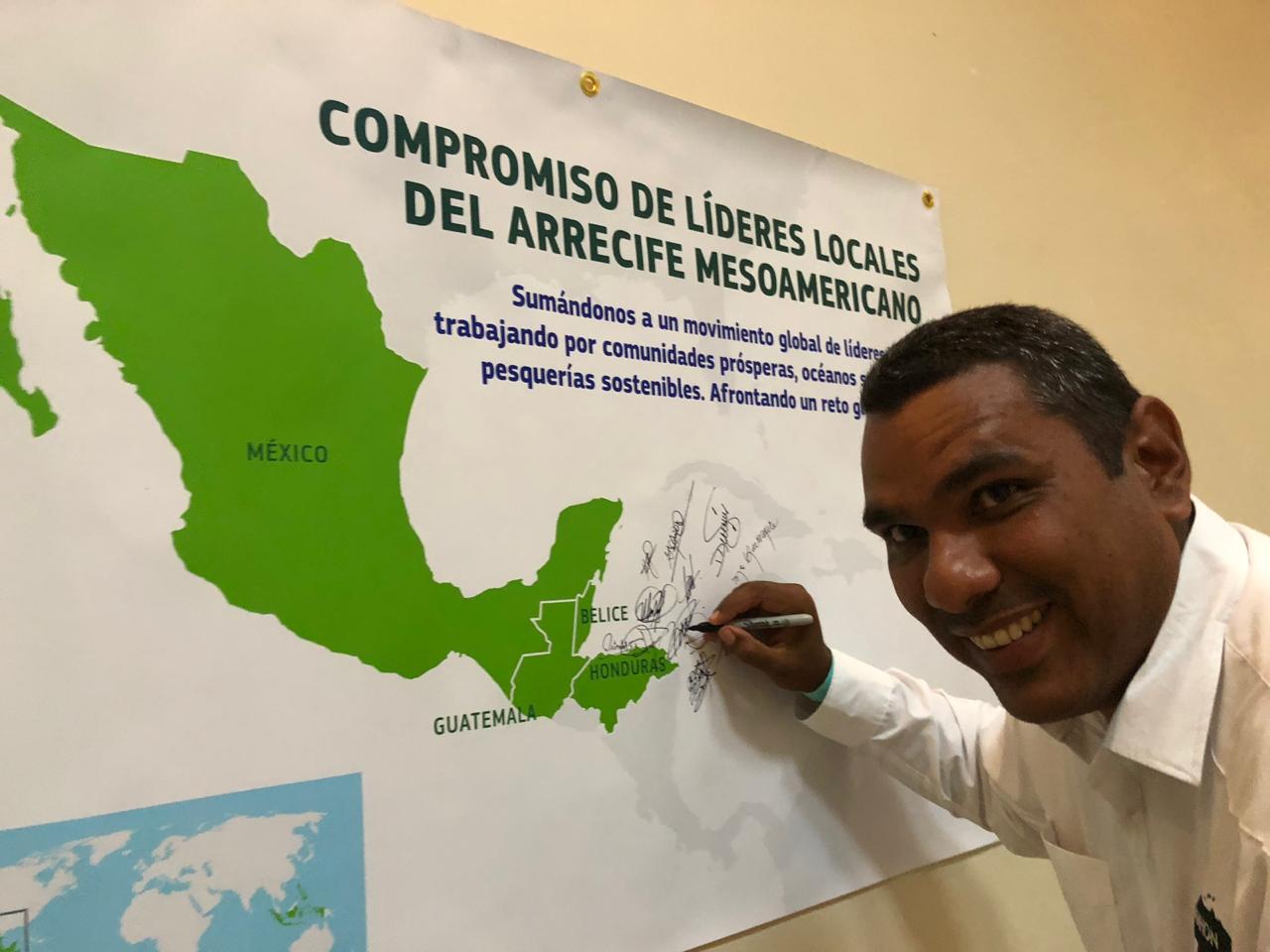From May 7-9, the Association of Honduran Municipalities (AMHON) held its annual meeting in Tela, a town on Honduras’ Caribbean coast. As mayors and other representatives from the nation’s 298 municipalities met to discuss challenges and successes and plan the year, one particular bright spot shined through—the growing network of coastal mayors committing to protect the Mesoamerican Reef region’s waters, reefs, and marine resources that sustain their communities.
During an evening event hosted by Rare and the Center for Marine Studies to celebrate their progress, 14 mayors from coastal communities across Honduras’ Caribbean coast and Bay Islands publicly pledged to support healthy and sustainable fishing communities.

“I feel very satisfied today because what we are seeing is teamwork. This started in Guanaja, but we now have commitments from more mayors. Fishers now have reasons to be hopeful,” said Guanaja Mayor Spurgeon Miller, who led mayors in publicly pledging to safeguard the marine resources coastal communities depend on. The Mayor referenced an effort last year in which a group of coastal mayors in the MAR declared their support for establishing networks of marine reserves.
These 14 Honduran mayors joined the 12 coastal Filipino leaders that took the same pledge during a summit of Filipino mayors that Rare helped facilitate this past March. Their commitment is a step forward in growing a global movement of local leaders taking action to protect the natural resources that sustain their communities. Fish Forever hopes to bring this movement to 500 local leaders to reach 1,000,000 fishers worldwide.

“The mayor’s network can help translate science into public policies that align municipal development plans with marine conservation and sustainable fisheries management,” said Jimmy Adino, Executive Director of the Center for Marine Studies.
Committing to Community-Based Fisheries in the MAR
The Mesoamerican Reef (MAR) is the second largest barrier reef in the world and the largest in the Western Hemisphere. With over 600 miles of essential mangrove, coral reef, and seagrass bed habitats, stretching across the Caribbean coasts of Mexico, Belize, Guatemala and Honduras, the livelihoods of over two million people across the region depend directly on the reef’s health.
Community-based fisheries underpin the local economies of millions of coastal communities around the globe, making significant contributions to national fisheries production and food security. New research suggests that the artisanal fisheries sector’s value and importance have long been underestimated and masked by a lack of data. In Honduras alone, the sector’s value and catches have surpassed those of its industrial counterpart for decades.

Unfortunately, overfishing continues to jeopardize the sector, and with that, the livelihoods and futures of coastal communities across Honduras and the world. Community-based fisheries largely operate under little or no effective governance. Fisheries data remains elusive and presents an ongoing barrier for effective fisheries management. Without effective governance at the municipal, provincial, national, and regional levels, coastal communities will remain in limbo.
“We know that reserves are an essential piece of sustainable fisheries management, and communities play a key role in their success,” said Dr. Steve Box, Sr. Vice President of Fish Forever, Rare’s coastal fisheries program. “By making this pledge, Honduras’ coastal mayors are investing in their communities’ future and demonstrating the power of local leadership in coastal fisheries reform. These mayors are setting an example for coastal communities around the world.”
By signing the pledge, the mayors committed to:
- Promote responsible fisher behaviors that include registration, catch monitoring, participation in management and adherence to regulations;
- Recognize, prioritize and advocate for local communities in their access to and use of coastal fisheries;
- Build an empowered and informed community through participatory fisheries management that fairly and equitably regulates effort and employs an accountable and transparent decision-making process;
- Endorse no-take reserves to replenish and sustain fish populations by protecting coastal habitats like coral reefs, mangrove forests and seagrass beds;
- Invest in strengthening human capacity and financial resources to sustain community-based fisheries management;
- Continue learning, teaching, and inspiring others by sharing lessons and experiences from their communities with leaders from across their country and around the world.